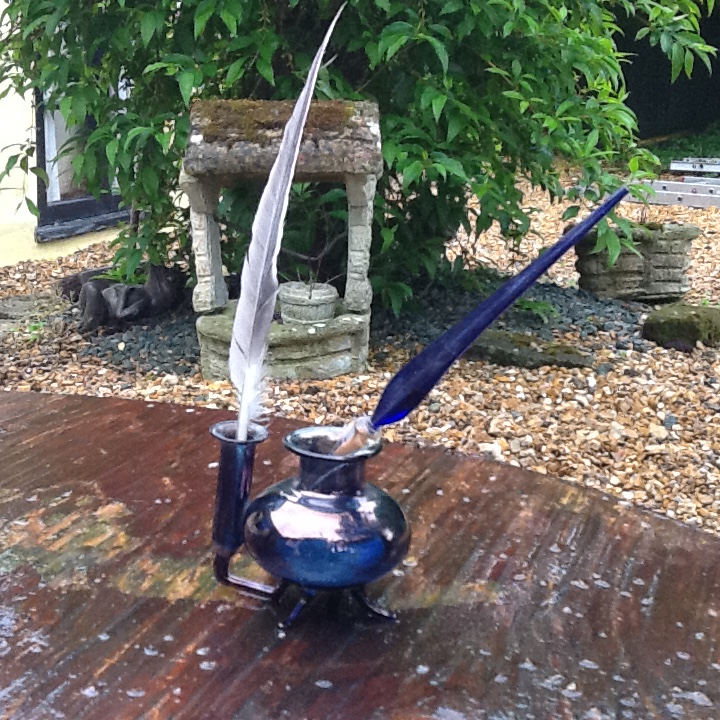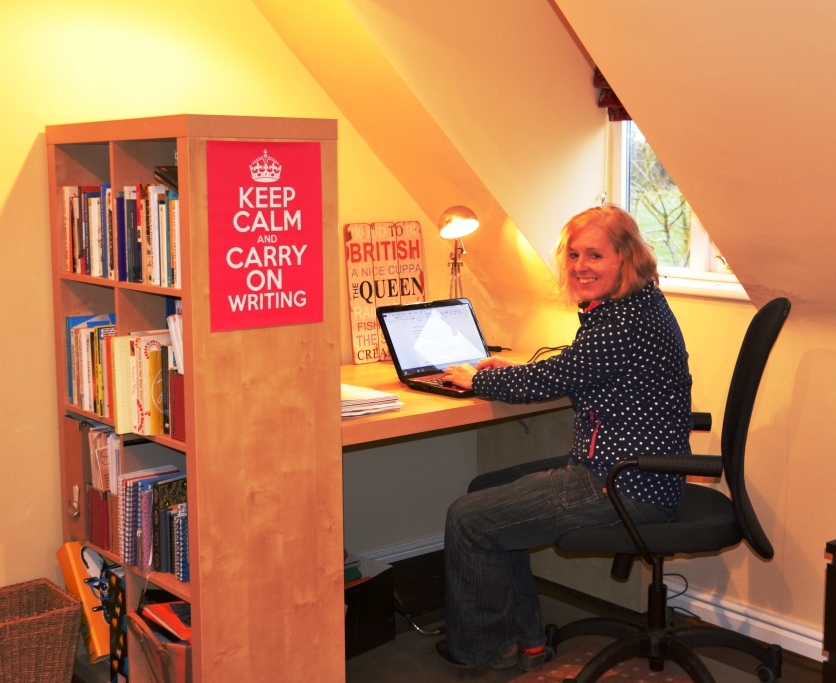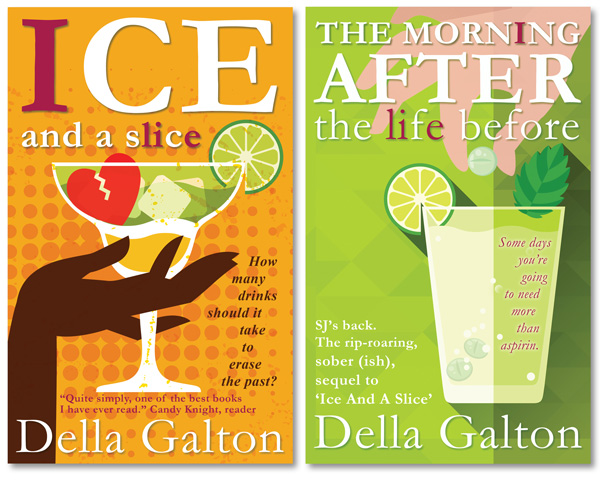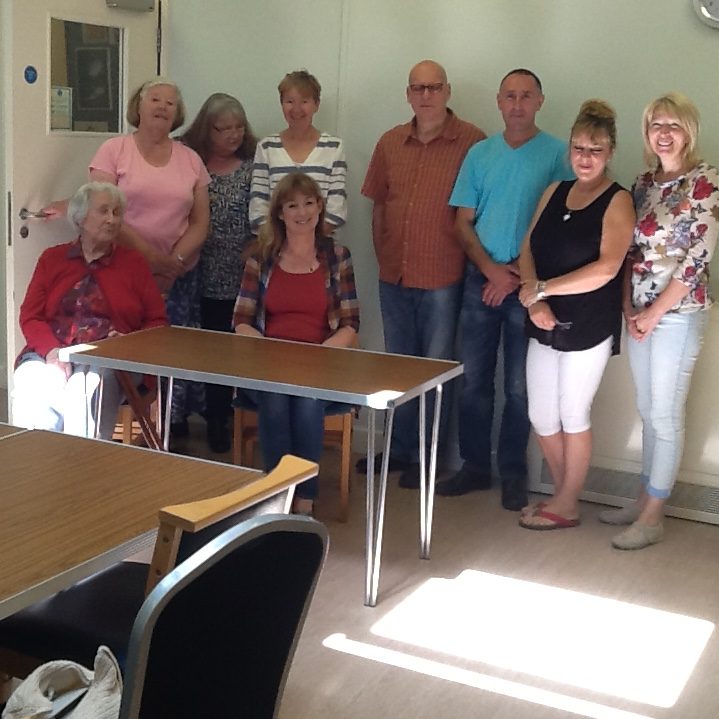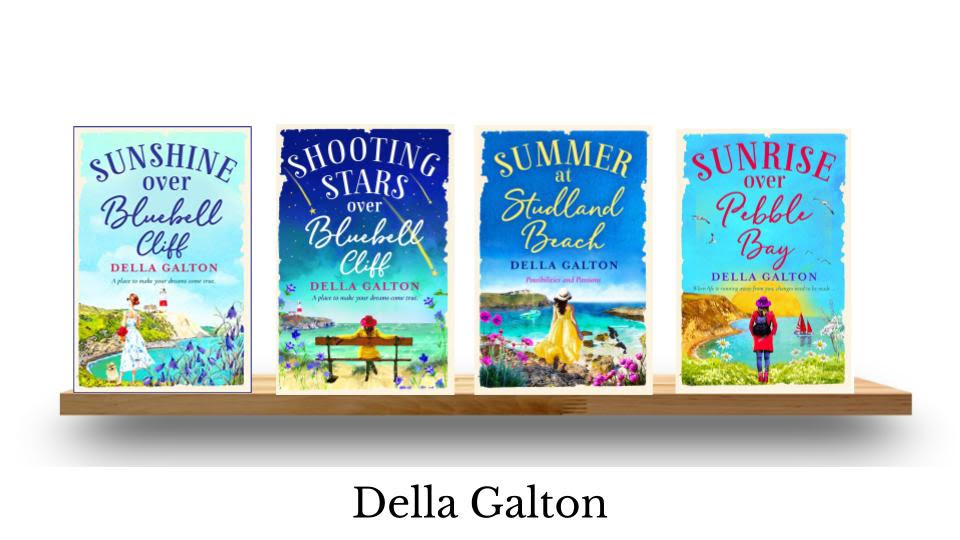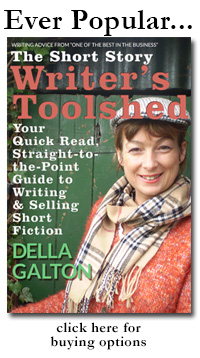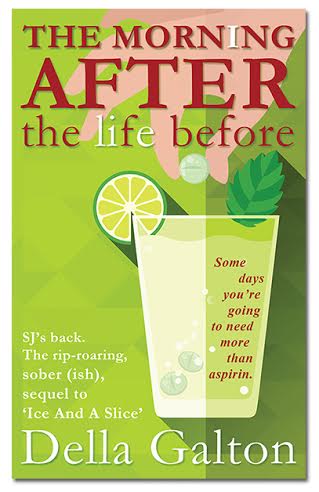 It’s publication day for me. The Morning After The Life Before is now out in the world. Oh gosh. I don’t think there is anything quite as scary. I used to think that finishing the book was the end, but it isn’t, is it. It’s just the beginning and the really scary bit is waiting to hear what people actually think of it! And if anyone’s a fast reader that could be very soon. Gulp.
It’s publication day for me. The Morning After The Life Before is now out in the world. Oh gosh. I don’t think there is anything quite as scary. I used to think that finishing the book was the end, but it isn’t, is it. It’s just the beginning and the really scary bit is waiting to hear what people actually think of it! And if anyone’s a fast reader that could be very soon. Gulp.
I am very proud of this one though. The Morning After The Life Before has a lot of me in it. As all of our stories do, don’t they. Not necessarily the bits you think though. A very dear friend of mine once told me I wrote in code. He meant that there were huge chunks of truth in my writing but they were mixed up with a lot of fiction. And so it is with this one.
I think I mentioned that I wasn’t a dominatrix, didn’t I! That’s the only clue you’re getting. There are some subjects in this novel I never thought I’d touch upon. That really is the last clue you’re getting. I can tell you though that what I don’t know I research thoroughly and I think that the emotions of what I write about are authentic. I hope you’ll see that if you do decide to read it.
Here’s the first chapter for free.
Chapter One
SJ gave a very deep sigh and glanced once more at the phone. For the last two hours and twenty-two minutes, not that she was counting, the phone had become the focal point of her front room. No, not just her front room – her entire life.
The phone had sat in its cradle on the table by the television. She had sat on the sofa next to it, flicking surreptitious glances at it, while pretending to read Cosmopolitan and occasionally getting up to check that the display was still working in case there was a power cut.
“What if there is a power cut?” she’d said to Penny when they’d done the handover. “I have the plug-in kind of phone – it won’t work unless it has power.”
“I wouldn’t worry – they’ll phone back.”
“But what if they don’t? I thought you said it’s a matter of life and death. What if they’ve spent the last three weeks plucking up the courage to phone the helpline and this is their final desperate plea for help and then no one answers because there’s a power cut. What if they die?”
“They might die anyway,” Penny pointed out, with unnecessary sharpness, SJ thought, considering she was only trying to get things right. And considering that Penny had actually said – when she’d been trying to persuade SJ to sign up for phone service – that the helpline was a matter of life and death.
“We are the fifth emergency service,” she’d said, a mite pompously, SJ had thought. Especially as she hadn’t bothered to explain what she meant. Clearly, as everyone knew, police, ambulance and fire were the first three emergency services. But what was the fourth? And why weren’t they the fourth?
It was slightly crushing to realise that the Alcoholics Anonymous helpline couldn’t be all that important. Not if they were only the fifth.
“What if I miss the phone ringing because I’m out of the room – say I’m in the bathroom?” SJ had asked.
“I thought you said you had a carry-around phone.” There was a gleam of triumph in Penny’s voice.
“Yes I do, but if there was a power cut I’d be using my back up phone. My in-case-of-emergency, old fashioned, plug-straight-into-the-mains phone, wouldn’t I? So I won’t be able to carry that around, obviously.” SJ sighed patiently and resisted the urge to add, ‘so what have you got to say to that then, Miss Goody Two Shoes, know-it-all, pompous Penny?’ Which she would have done without hesitation once when someone like Penny wound her up.
But which she couldn’t do now because she was no longer that person any more. She was no longer judgmental and impatient and prickly – which she’d only ever been because she was lacking in self-esteem obviously. These days, she was serene and calm and peaceful. Serenity was her middle name. She’d considered, in fact, making Serenity her actual middle name by deed poll. Only there didn’t seem much point because no one ever asked you what your middle name was anyway. And deed polls were probably expensive.
“Someone might be trying to get through right now while we’re talking,” Penny said wearily.
“Right. I see. Yes, okay. Point taken.”
“Someone might be dying right now. So maybe if I could just put the phone down, SJ? Please – if you’re ready to take over. Are you?”
“Of course. Sorry. Um bye.”
“Goodbye, SJ.”
Penny disconnected. The phone rang almost immediately and SJ was so surprised she dropped the handset. Then when she reached to pick it up she knocked over her cup of calming peppermint tea which was on the glass-topped coffee table between her and the phone. Oh crap. The phone was still ringing. The tea pooled across the glass and began to drip down the wooden leg.
Double crap. What if there was some raging, desperate, suicidal alcoholic on the other end of the phone? What if they were pissed off because they hadn’t been able to get through? What if they shouted at her? What if they were an utter maniac? Don’t judge, SJ. Deep breaths, in, out, in, out, in, out. Try to stay calm. Serene and calm is where it’s at. If you feel serene your voice will be serene. Nothing to it. She punched the green button with a finger, intending to say, ‘Yep,’ in that ultra-cool voice that ultra-cool receptionists – usually the ones that worked in PR and marketing companies – were fond of using.
What actually came out of her mouth wasn’t yep. It was yip. She tried again. “Yip, yep, yip, yap.” Oh crap. Now she sounded like the next door neighbour’s Jack Russell terrier.
“SJ it’s me.” Penny’s voice held a note of incredulity. “I’m just – er checking that the phone line transferred okay. “Is – everything all right?”
“It’s fine. Absolutely fine. Couldn’t be better. Sorry, I was practising my – um – my dog whisperer voice. I’m doing evening classes.”
“You’re doing evening classes in dog whispering!”
“Yep. I mean yip. Yip yip, yap, yippety yip – ha ha! What do you think?”
“Very – er – authentic, but do you suppose you could do it when you’re not answering the helpline?”
“Of course. Sure. Sorry.”
SJ disconnected and put her head in her hands, before realising belatedly that her elbows were now in a pool of peppermint tea. Fantastic. Why had she ever thought she could do this? She must be mad. She shouldn’t have volunteered. She should have contented herself with making tea at meetings or acting as treasurer. Even she couldn’t make too much of a hash-up of that. What did she know about giving up drinking anyway? What was she going to say to someone if they did phone up the AA helpline? Oh it’s easy – you just swap your vodka for a mug of peppermint tea. Nothing to it. No one was going to believe that, were they? Everyone knew it wasn’t easy to give up. Not when you’d been drinking on a daily basis for months, or years, or possibly even decades.
She’d only managed to give up because she’d had an utterly brilliant counsellor who she’d gone to see, week after week after week. And let’s face it she probably wouldn’t have done that if he hadn’t also been utterly gorgeous and if she hadn’t also had the most humungous crush on him. Would she have given up drinking at all if she hadn’t fallen in love with her counsellor?
Ironically, it was the thought of the utterly gorgeous Kit that snapped her out of the beating herself up mood she’d fallen into. She cleared up the peppermint tea spillage – grabbed her iPad from the kitchen and found her latest To Do list. At the top of the page she wrote:
Things not to say when answering the AA helpline
1. Yip or yap, or yippety yip – or any possible derivative of the word yip.
2. Yep. (Mainly because it was very hard to inject a decent amount of empathy and sympathy and understanding into the word yep. Yes with a question mark would be better – or yeah if you stretched it out a bit or maybe even yo – that was a pretty cool word around youngsters, these days. Except that yo didn’t sound very sympathetic either. Yo dude – you gotta problem with your drinking? Hey that’s tough. And anyway she wasn’t exactly young. Forty-two might be the answer to life, the universe and everything – but as an age it was well over the hill. How on earth had she got to forty-two anyway?)
3. “Hello, this is the Alcoholics Anonymous helpline – how can I help?”
That would have made the most sense. But unfortunately she couldn’t say that in case it was her mother phoning, or her sister, Alison, or her best friend, Tanya. Not that her mother and her sister and Tanya didn’t know she was a recovering alcoholic. But there were people in her life, these days, who didn’t know. And it wasn’t the sort of thing she wanted to advertise when she answered her own phone. That was the trouble – she had no way of telling whether she was answering a call diverted from the helpline or whether it was someone who wanted to speak to her. It was a conundrum.
Although not that much of one because the phone hadn’t rung for – what – coming up for three hours now anyway. Soon her phone service shift would be over and she could go back to doing her housework or planning her Poetry and a Pint session. In fact, what the heck, why didn’t she do that now? What was she waiting for?
She had barely reached the door when the phone began to ring. SJ stared at it in surprise. She wasn’t imagining it, was she? It was ringing? She took a deep breath and strolled back into the room. This time she was going to get it right. She would be pleasant, polite, with a touch of concern. She would be relaxed, calm, the model helpline attendant. She felt her chest swell a little with pride at the thought. This was her chance to make a difference.
She picked up the phone. “Hello, can I help you?” Oh so simple – why hadn’t she thought of that before?
“Hello,” the girl’s voice was tearstained. “Is that the AA?”
“Yes it is.”
There was a small silence and SJ wondered if she’d sounded sympathetic enough. Maybe she’d been a bit matter of fact, or even abrupt. She sat back down on the sofa, pressing the phone close to her ear. “Are you okay?” she said softly.
“I don’t think I am,” said the girl and now she sounded so scared and so vulnerable that SJ forgot all about herself and how she was coming across and she just wanted to say something, anything that would help – even if it was only for a few moments, a few seconds.
“You’ve done the hardest part,” she said. “You’ve just phoned for help. You’ve made a phone call that could save your life. I know how hard it is to do that. I did it myself once.”
“Did you used to drink a lot then? I mean, really a lot. I don’t just mean wine. I mean, well, bottles and bottles of voddie?” The girl’s voice grew a little fainter and SJ realised she’d drawn away from the phone. She could hear sounds in the background, the clink of a bottle against a glass and the unmistakable glug of liquid.
“Are you drinking now?”
“No,” the girl said. There was a pause and SJ heard her swallowing and the slur in her voice when she spoke again. “No, I’m not drinking. I’m not phoning for myself. I’m phoning about a friend.”
“And is your friend able to come to the phone, honey?”
Another pause to swallow. “No – not really. She’s er… she’s asleep. Maybe when she wakes up.”
“Sure,” SJ said, knowing there was no friend. “So tell me about you. Are you okay?”
There was another long pause followed by a little beep and SJ realised as she held the phone away from her ear again that the display was blank – that the girl had hung up. She sat back on the sofa feeling terribly sad and also a little sick. So her very first call and she’d done nothing. Nothing at all. Somewhere out there was a very scared, very lonely, very drunk young girl and she – SJ – had been utterly powerless to help her.
***
And if you’d like to read on for a mere £1.99 – less than the price of a glass of Chardonnay! Please click here.
Thank you 🙂






